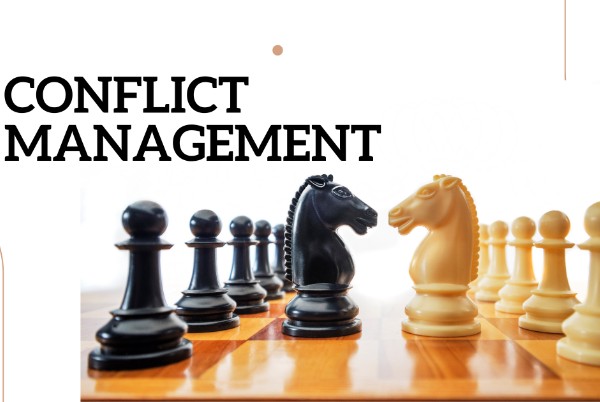


Introduction:
Conflict is a part of life. It's natural to have disagreements with co-workers and clients, but conflict can also be a positive thing—it's often an opportunity for growth. The following tips will help you manage conflict better:
Don't avoid conflict:
Avoiding conflict is not the same as avoiding problems. Conflict will always be a part of life, so it's important to learn how to deal with it when it arises.
The first step in dealing with conflict is recognizing its presence: you may find yourself feeling annoyed or frustrated by something someone has said or done that makes you feel upset. If this happens, take some time for yourself before responding to what the other person said or did—you'll probably feel better after doing so!
Be honest and respectful, but direct:
Be direct and honest, but also considerate. You should be diplomatic in your communication with another person (even if they don't deserve it), while also being firm when it's appropriate to be so—but not too firm or inflexible. You can express your needs in a way that acknowledges the other person's needs as well: "I feel like I'm being treated unfairly at work because..." or "I need more support from my team leader." Be confident when making demands of others—but avoid being arrogant by avoiding using passive language such as "please" and "thank you." If someone gives you an order that seems unreasonable, it may help to ask why they think this is necessary before responding with disbelief ("Why do we have to do this?"). If possible, try asking questions instead of making statements; this will allow both parties involved time to think through their responses without having them spoken aloud immediately after each other (which would otherwise create confusion).
Be willing to listen:
The most effective way to handle conflict is to listen. If you're not willing to listen, then your best bet is just shutting down and avoiding the situation altogether. You don't want your employees or customers thinking that they can get away with being disrespectful or rude, but if you show that you are listening by actively trying to understand their point of view, then this will make them more likely to feel respected and appreciated for their input in future interactions.
Asking questions is also important; don't assume that everything they say makes sense just because it came from them! It's okay if what they're saying doesn't match up with what we think—it could be because there's some misunderstanding going on between us (which we should address), or perhaps there was no misunderstanding at all—so let yourself ask questions without getting defensive!
Don't be afraid to take a leadership role:
The best leaders are those who always stand up for what's right and make things happen. They're often the first to say "no" when someone asks them to do something that doesn't align with their values or mission. They don't let others push them around, even if it means taking a leadership role in the process.
But leadership roles can be stressful—and they often aren't easy! You may find yourself taking on more responsibility than you're ready for or feeling overwhelmed by all of your responsibilities (which isn't good). This can lead to burnout, stress and anxiety levels that are higher than usual. But there's no reason why any one person needs this kind of pressure: if everyone thinks twice before making demands on each other then everyone will likely feel happy about themselves afterward because they've been able to contribute positively towards solving problems together as individuals rather than individuals fighting against each other like animals in a cage fight!
Find your "why."
Once you've identified your goal, it's time to determine why it matters. What is the “why” behind this? Why do you care about this issue?
You may ask yourself: “What difference will my work make in the world? How can I help people who have been hurt by conflict, or those who haven't yet experienced it but could benefit from learning how to navigate these types of situations better?"
These are all good questions that should lead us down a path toward finding our passion (or purpose).
Conflicts can be positive opportunities for growth and reflection:
Conflict is a chance to learn about ourselves and others, as well as our values and beliefs. It’s also an opportunity to explore new ideas and ways of doing things.
Once you have reached an agreement on how to handle the conflict situation, it is important that you follow up on any promises made during your dialogue about how each party will behave in future situations where there may be tension between them again.
Conclusion:
If you find yourself in a conflict, remember that it's not the end of the world. You have the power to choose how you respond to it and how you move forward. These behaviors can help become more open-minded, confident, and assertive as well as showing empathy for others.
Learners Ink 2019 - | All Rights Reserved